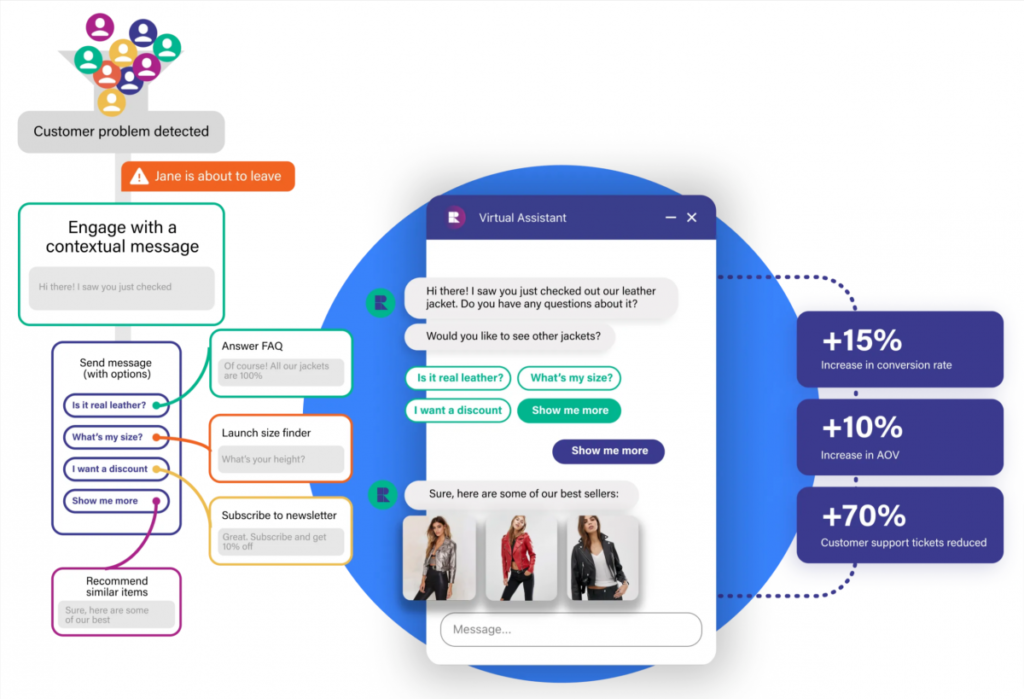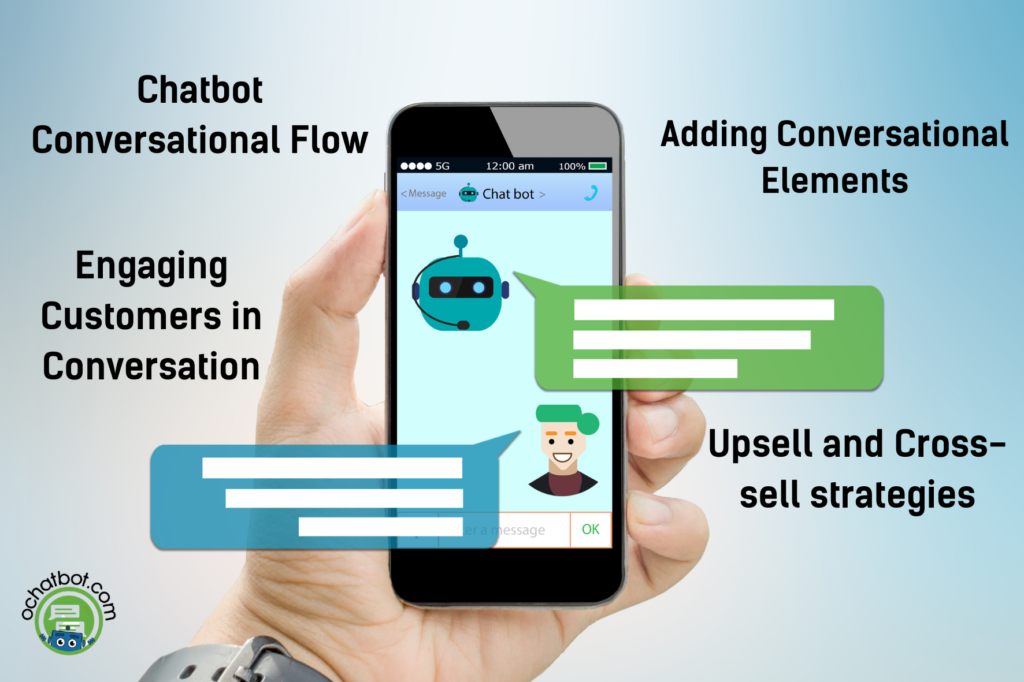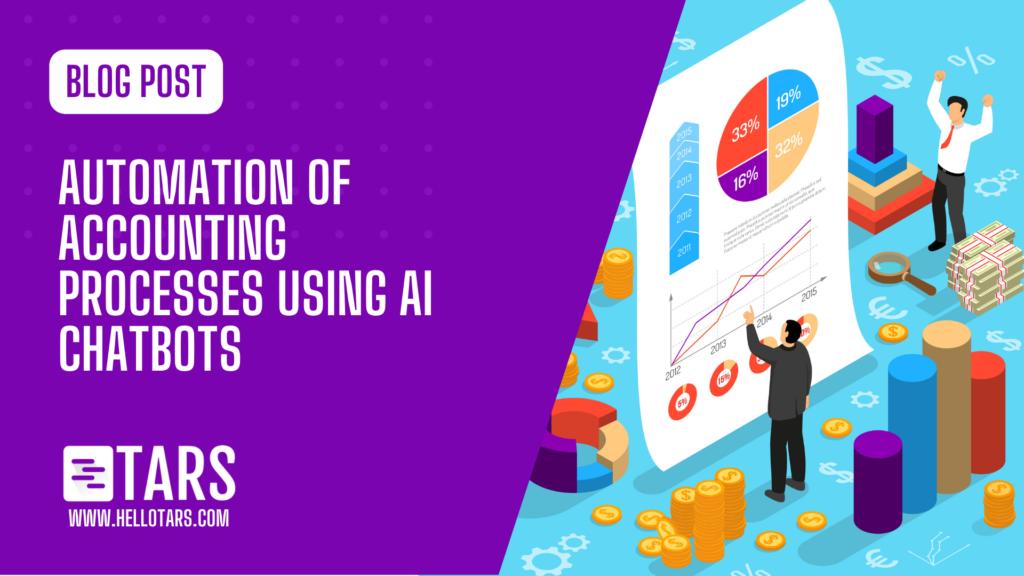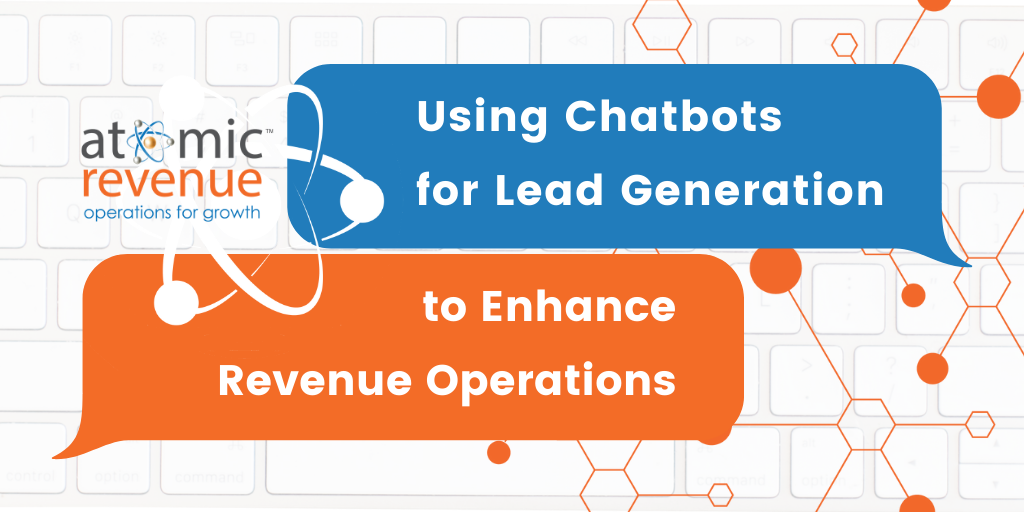Introduction to AI in Revenue Generation
The evolution of artificial intelligence (AI) has created a powerful shift in today’s business landscape, opening up a world of new opportunities. From powering automation to predictive analysis, AI technologies have begun playing significant roles in revenue generation, causing businesses to rethink their traditional strategies to reach new heights.
Importance of AI in Modern Business
AI is not just a buzzword; it’s a key player in revolutionizing today’s businesses. The use of AI in operations, from data analysis to customer interactions, has proven to significantly enhance a business’s efficiency and subsequently, its potential to generate higher revenues. The ability to deliver personalized experiences, speed up processes, and make smarter decisions using AI gives businesses the necessary competitive edge to thrive in this data-driven era.
Chatbots, a prime example of AI application, have quickly moved from being just a customer service tool to a potent revenue generator. Offering quick and personalized responses, these intelligent conversational agents promise not only enhanced customer experience but also increased customer retention – the foundation of steady revenue flow.
Transition from Traditional Business Strategies to AI
The journey from traditional business practices to intelligent operations with AI is undoubtedly challenging one. However, the compelling results of integrating AI into the business model make it an investment worth considering. AI replaces guesswork with factual insights, offering the most viable solutions to improve revenue generation. With AI technology, businesses are equipped to maximize their potential, driving optimized marketing strategies, improved customer service, and ultimately, increased profits.
What we’re witnessing is just the beginning of the AI era in business, and moving forward, it is expected to continue significantly impacting revenue generation in ways we can’t even imagine yet! So, are you ready to harness the power of AI for your business’s revenue generation?

This image is property of ecommercefastlane.com.
Understanding AI and Chatbots
We are dwelling in an expanding digital age, and AI, or Artificial Intelligence, plays a robust role in that growth. Honestly, we interact with it more often than we realize. From search engines tailoring results to our preferences, to our social media feeds showing posts that mirror our interests, AI is actively reshaping how we interact with technology.
Elucidating Artificial Intelligence
In a nutshell, Artificial Intelligence is the ability of a computer program or machine to think and learn autonomously. It works by processing vast amounts of data and identifying patterns within that data. From there, it makes predictions or suggestions based on those patterns. It’s like having a super-powered, hyper-efficient assistant that can sift through mountains of data, perform complex calculations, and provide insights that we might not have been able to see.
Defining Chatbots and their Functionality
On the other hand, Chatbots are a more specific application of AI. They are automated software designed to interact with humans in their natural language, often used in messaging apps or customer service scenarios. Functionally, they engage with customers, answer queries, and provide information faster than a human could.
The true beauty of chatbots lies in their ability to offer personalized experiences to customers. Based on past interactions and data, they can predict customer requirements and provide solutions instantly. This not only improves customer satisfaction levels but also creates opportunities for upselling and cross-selling—factors that positively impact the revenue generation.
Indeed, the roles AI and chatbots play in revenue generation are multifaceted and critical. From improving customer service to creating more personalised user experiences, AI is revolutionizing the way businesses make money online.

This image is property of ochatbot.com.
Implementation of Chatbots in Business
As an online business owner, you’d agree that one of the key metrics we all yearn for is an improvement in our bottom line. It’s a game of numbers and with the introduction of Artificial Intelligence, we can play a better game. In recent years, AI has evolved in leaps and in business, one form this AI evolution has taken is the use of chatbots for customer service.
How Chatbots are applied in Business
Traditionally, businesses would need a large team of customer service representatives to handle customer queries around the clock. But with chatbots, these queries are being handled more efficiently. AI algorithms help chatbots learn from previous interactions, hence their ability to provide solutions even quicker. In fact, chatbots now help with lead generation, offering real-time assistance to visitors, and converting those visitors to customers. Sounds like hitting more than two birds with one stone, right? Coupled with machine learning, chatbots can track purchasing patterns and consumer behavior, thereby offering personalized recommendations. All these can significantly increase sales in your online business.
Real-world Examples of Successful Chatbot Implementation
Businesses like Starbucks and Duolingo are leading examples of successful chatbot applications. Starbucks allows customers to place orders via their barista bot while Duolingo uses chatbots to interactively teach languages. These bots streamline processes, helping businesses stay efficient and profitable.
As we continue to witness an unprecedented growth in online businesses, the role of chatbots in enhancing customer experience and boosting revenue cannot be overemphasized. AI is gradually transforming the way businesses operate, and I believe that we’re only scratching the surface of its full potential.
Role of AI and Chatbots in Customer Relationship Management
In the digital age, technology has a critical role in redefining how businesses operate. Specifically, Artificial Intelligence (AI) and chatbots have been at the forefront of a revolution in the world of Customer Relationship Management (CRM). This revolution is generating tangible impacts on revenue, marking a shift in how businesses approach customer service and communication.
AI’s Impact on Customer Service
The advent of AI offers unprecedented opportunities in improving customer service. AI can simplify complex processes, recognize patterns, and even predict customer behavior. With these capabilities, businesses can provide more personalized and efficient services, which leads to higher customer satisfaction. In turn, this increased satisfaction can drive customer loyalty and ultimately, more revenue. Crucially, AI enables businesses to scale their customer service without compromising on speed or quality, something that was arduous in a pre-AI world.
Chatbots in Customer Outreach and Communication
Chatbots, on the other hand, provide an innovative means of communication and outreach. Unlike traditional methods, chatbots are available 24/7, ensuring that businesses can interact with customers anytime, anywhere. Besides their omnipresence, chatbots come with the capability of real-time customer profiling. They analyze customer behavior and preferences through conversations, helping businesses gather critical information for targeted marketing. This personalized approach to outreach and communication not only can increase customer engagement but also create vast potential for up-selling and cross-selling, leading to revenue generation.
By harnessing the power of AI and chatbots in CRM, businesses can transform their approach, making their operation more efficient, personalized, and ultimately, more profitable. This potent combination is reinventing how businesses generate revenue in the digital era.
AI and Chatbots in Sales Funnel Optimization
As an online business owner, I have seen firsthand how artificial intelligence (AI) and chatbots can play a crucial role in revenue generation. They have, in recent times, proven to be powerful tools in optimizing the sales funnel, which is often the backbone of any online business. Among many other things, these technological advancements usher in efficiency, speed, and customer satisfaction.
Understanding the Sales Funnel Process
The sales funnel process is essentially a buyer’s journey from the moment they land on your site to the point of purchase. It typically involves stages like awareness, interest, decision, and finally, action. Understanding this process is integral to optimizing it, and this is where AI and chatbots come in.
Chatbots and AI in Lead Generation and Conversion
Chatbots help simplify and expedite the navigation process for customers, making it easier for them to find what they need while offering personalized service. With their ability to handle multiple queries simultaneously and their 24/7 availability, chatbots indeed generate quality leads and deliver improved conversion rates.
Furthermore, AI can gather and analyze data on customer behavior, preferences, and purchasing patterns. This actionable insight allows for better targeting and personalization, driving potential customers down the sales funnel more efficiently and increasing conversion rate. It’s no exaggeration to say that AI-powered chatbots can significantly enhance a business’s revenue generation.
Gone are the days of passive customer interaction. Today, chatbots are becoming an indispensable part of successful online businesses. And while there’s no one-size-fits-all solution, there’s no doubt that integrating AI and chatbots in your sales funnel process can lead to increased conversions, customer satisfaction, and in turn, revenue generation. The future of online commerce looks promising with AI and chatbots at the focal point of this digital transformation.
Monetizing AI in Online Businesses
If anyone told me a few years back that machines would take a central role in generating income for businesses, I’d have had my doubts. Fast forward to today, artificial intelligence (AI) – specifically chatbots – has become a game-changer in the realm of online businesses. Much of this revenue generation is made feasible by AI, drawing us into an exhilarating new era of possibilities.
Methods of Generating Revenue through AI
Among the methods of monetizing AI in online businesses, chatbots lead the pack. These interactive software platforms mimic human conversation, providing quick, efficient, personalized customer services around the clock. Indeed, my experience confirms that by using AI-powered chatbots, businesses can dramatically increase their conversion rates and, in turn, revenue. Moreover, chatbots also help collect valuable customer data which enables companies to refine their marketing strategies and offer targeted solutions to customers.
Factors Affecting AI Income Generation
However, the quantum of revenue AI initializes isn’t set in stone. Based on my observations over the years, I’ve seen that there are multiple factors at play. The effectiveness of AI in generating income largely depends on the quality of the technology, its application, and how well businesses understand their customer needs. The more seamless and intuitive the AI experience, the better the customer engagement and, consequently, the revenue outcome.
So, there you have it. As businesses continue to digitize and the need for optimized customer interactions heightens, AI could essentially become our new revenue ‘cash cow’. Remember, it’s all about understanding your customers and using technology like AI and chatbots to meet their needs better, foster stronger relationships, and eventually, generate more revenue.

This image is property of www.hellotars.com.
AI and Chatbots in Enhancing User Experience
In the digital era, AI and chatbots are revolutionizing the way businesses interact with their consumers, making the user experience seamless and more personalized than ever before.
Chatbots and User Interaction
Chatbots are the latest tool businesses are leveraging to increase their bottom line. Think of them as the virtual salesperson, customer service rep, and even your company’s brand ambassador, they are available around the clock, answering customer inquiries, resolving issues, and offering product recommendations. AI-powered chatbots goes the extra mile by learning from each interaction, they get smarter over time, constantly improving the quality of interactions and in turn, building stronger relationships with users. Their ability to provide instant responses reduces waiting times, leading to increased customer satisfaction and higher conversion rates.
AI’s Role in Improving Product and Service Discovery
AI goes another step further. Ever marveled at how Amazon seems to know exactly what you want? That’s AI at work! Using predictive analytics, AI sifts through voluminous data to understand customer behavior, and based on this insight, offers product recommendations that align with individual preferences. This not only improves the discovery process for products and services but also increases the chances of closing a sale. Furthermore, AI can also automate tasks, freeing up human resources to focus on tasks that require human touch, this leads to increased productivity and profitability.
Through chatbots and AI, businesses create a dynamic and personalized User Experience, encouraging users to stay longer, engage more and buy more, thus driving revenue generation while enhancing the overall customer experience.

This image is property of blog.atomicrevenue.com.
Barrier and Limitations of AI in Revenue Generation
As much as I’m thrilled by the vast opportunities that Artificial Intelligence presents in revenue generation, it is also important to look at the other side of the coin. AI, like any other technology, has several barriers and limitations that could be hurdles in achieving optimal results.
Technical Challenges in Implementation
The implementation of AI technology presents a number of technical challenges. This particularly applies to small and medium-sized businesses that may not have the necessary infrastructure in place. AI requires sophisticated technology and high computational power to function optimally. Similarly, quality and good amount of data is a prerequisite to harness the full potential of AI systems. Finding relevant, clean data to train AI can pose a huge challenge. Additionally, there’s the need for professionals who are well-versed in AI technology. These technicalities often discourage businesses from adopting AI, affecting its role in revenue generation adversely.
Ethical and Privacy Concerns
Ethics and privacy are two significant areas of concern when it comes to AI. AI systems, such as chatbots, collect and process an ocean of user data to personalise interactions and yield desired outcomes. This has raised debates about the ethical implications of data usage and possible breaches of privacy. Users may not be comfortable sharing sensitive information with a chatbot making them hesitant to use such modes of communication. Privacy concerns also stem from potential misuse or loss of data in case of a security breach.
Despite these challenge, I believe that the rewards of AI outweigh these challenges. However, it’s vital for companies harnessing AI to be up-front about addressing these barriers to smooth the path for its adoption and eventual revenue generation.

This image is property of blog.atomicrevenue.com.
Future of AI and Chatbots in Revenue Generation
The invasion of Artificial Intelligence (AI) and Chatbots in the business domain has opened up many avenues for revenue generation. These autonomous entities are no longer just support mechanisms, but pivotal entities in driving sales for businesses. The following discussion will delve deeper into exploring the role of AI and Chatbots in revenue generation, developments in AI and Chatbot technologies and the opportunities that they present.
Advancements in AI and Chatbot Technologies
The advancements in Artificial Intelligence and Chatbot technologies have provided businesses with unprecedented capabilities such as predictive analytics, customer segmentation, and targeted marketing. AI algorithms can analyze huge amounts of customer data, identify patterns, and predict future behaviors. As a business person, this allows me to create personalized marketing messages that can potentially result in higher conversion rates.
AI Chatbots, on the other hand, have become more intuitive and human-like, able to handle complex customer queries and provide instantaneous solutions. This reduces the dependency on human customer support, saves costs, and increases customer satisfaction. For my business, it is a resoundingly positive report card.
New Revenue Opportunities with AI
AI technologies also usher in new streams of revenue generation. One significant area is the AI-driven automation of various business processes, which increases efficiency and reduces costs. Another area is leveraging AI to create new product offerings. For instance, Netflix uses AI to recommend personalized contents to its users which not only increases customer engagement but also serves as a source of revenue.
So, the perceptible paradigm shift brought about by AI and Chatbots has reshaped the dynamics of marketing and sales. These are exciting times for businesses willing to embrace AI and explore the tons of new opportunities it brings.
Case Studies: AI and Chatbots Success Stories
During the past decade, it’s been impossible not to notice the significant impact AI and chatbots are having on businesses when it comes to boosting revenue. In this era of digital technology, businesses, both big and small, are constantly searching for innovative ways to generate revenue, and AI-powered chatbots have become a reliable tool. In my research, I’ve come across impressive success stories of companies harnessing AI for outstanding revenue generation.
Success Stories of AI in Revenue Generation
Probably the most recognizable aspect of AI today is the increasing use of chatbots, specifically when it comes to online customer service. Among the most successful examples is eBay’s ShopBot, a virtual shopping assistant powered by Artificial Intelligence. This bot serves as a live shopping consultant for eBay users, making their shopping experience easier and more personalized. The result? A significant increase in sales and customer retention, which means a massive growth in eBay’s revenue.
Chatbots Transforming Businesses
Another example that caught my attention is that of Domino’s Pizza. They introduced “Dom”, an AI-powered pizza-ordering chatbot. Thanks to Dom, customers could now place their orders effortlessly, talk about their preferences, and even track their order delivery, round the clock. This changed the game for Dominos in terms of customer engagement and sales, and in turn, their revenue skyrocketed.
These success stories signify the importance of integrating AI and chatbots into business strategies. They demonstrate how AI can be a game-changer and a revenue booster for businesses, and how it can revolutionize the customer experience while enhancing commercial competitiveness. Chatbots have the potential to transform businesses, take customer service to an exceptional level, driving revenue growth, and so clearly, are not to be overlooked in businesses’ growth strategies.
Conclusion: Evaluating the Role and Impact of AI and Chatbots on Revenue Generation
AI and Revenue Generation: The Powerhouse of Online Business
Coming to the end of our discussion on the influence of AI on revenue generation, I want to summarize the many ways in which AI, particularly chatbots, are empowering online businesses to scale up.
The substantiality that chatbots bring to the customer service industry cannot be overstated. I’ve talked about how AI-powered chatbots are transforming customer interaction by offering personalized experiences, prompt responses, and round-the-clock service. They could well become the new revenue drivers, freeing up human agents to focus on more complex tasks. In fact, they’ve begun to contribute directly to revenue generation by promoting upselling and cross-selling, pushing personalized recommendations, and encouraging prospective buyers to make a purchase.
Going Further: Chatbots as Revenue Generators
But chatbots aren’t just customer support tools; they’re rapidly evolving into active revenue generators. With AI on board, they’ve become efficient sales representatives, decoding customer behavior, and preferences to suggest products or services, enhancing sales in the process. Marketers are leveraging chatbots to boost engagement rates and convert leads into customers, driving up revenue significantly.
As online businesses continue to leverage the power of AI, it’s easy to see why investing in an AI and chatbot strategy can potentially deliver substantial returns. Businesses large and small can benefit from these virtual workers that work tirelessly to boost customer satisfaction and revenue. This conversation surrounding chatbots and AI in revenue generation certainly doesn’t end here, and I’m excited to see how this technology continues to evolve and redefine the scope of online businesses in the future.
